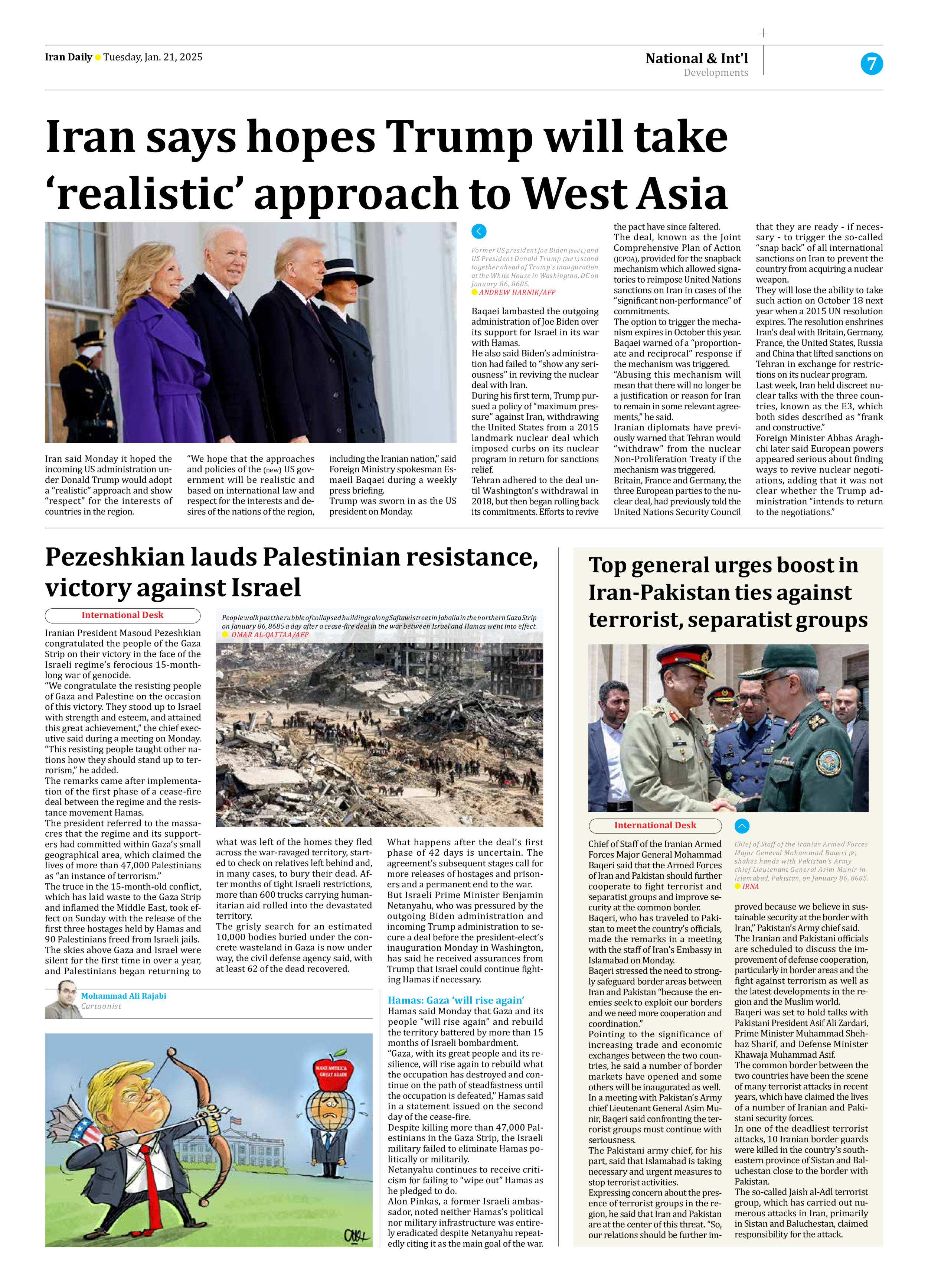
Copy in clipboard...
Iran says hopes Trump will take ‘realistic’ approach to West Asia
“We hope that the approaches and policies of the (new) US government will be realistic and based on international law and respect for the interests and desires of the nations of the region, including the Iranian nation,” said Foreign Ministry spokesman Esmaeil Baqaei during a weekly press briefing.
Trump was sworn in as the US president on Monday.
Baqaei lambasted the outgoing administration of Joe Biden over its support for Israel in its war with Hamas.
He also said Biden’s administration had failed to “show any seriousness” in reviving the nuclear deal with Iran.
During his first term, Trump pursued a policy of “maximum pressure” against Iran, withdrawing the United States from a 2015 landmark nuclear deal which imposed curbs on its nuclear program in return for sanctions relief.
Tehran adhered to the deal until Washington’s withdrawal in 2018, but then began rolling back its commitments. Efforts to revive the pact have since faltered.
The deal, known as the Joint Comprehensive Plan of Action (JCPOA), provided for the snapback mechanism which allowed signatories to reimpose United Nations sanctions on Iran in cases of the “significant non-performance” of commitments.
The option to trigger the mechanism expires in October this year.
Baqaei warned of a “proportionate and reciprocal” response if the mechanism was triggered.
“Abusing this mechanism will mean that there will no longer be a justification or reason for Iran to remain in some relevant agreements,” he said.
Iranian diplomats have previously warned that Tehran would “withdraw” from the nuclear Non-Proliferation Treaty if the mechanism was triggered.
Britain, France and Germany, the three European parties to the nuclear deal, had previously told the United Nations Security Council that they are ready - if necessary - to trigger the so-called “snap back” of all international sanctions on Iran to prevent the country from acquiring a nuclear weapon.
They will lose the ability to take such action on October 18 next year when a 2015 UN resolution expires. The resolution enshrines Iran’s deal with Britain, Germany, France, the United States, Russia and China that lifted sanctions on Tehran in exchange for restrictions on its nuclear program.
Last week, Iran held discreet nuclear talks with the three countries, known as the E3, which both sides described as “frank and constructive.”
Foreign Minister Abbas Araghchi later said European powers appeared serious about finding ways to revive nuclear negotiations, adding that it was not clear whether the Trump administration “intends to return to the negotiations.”







